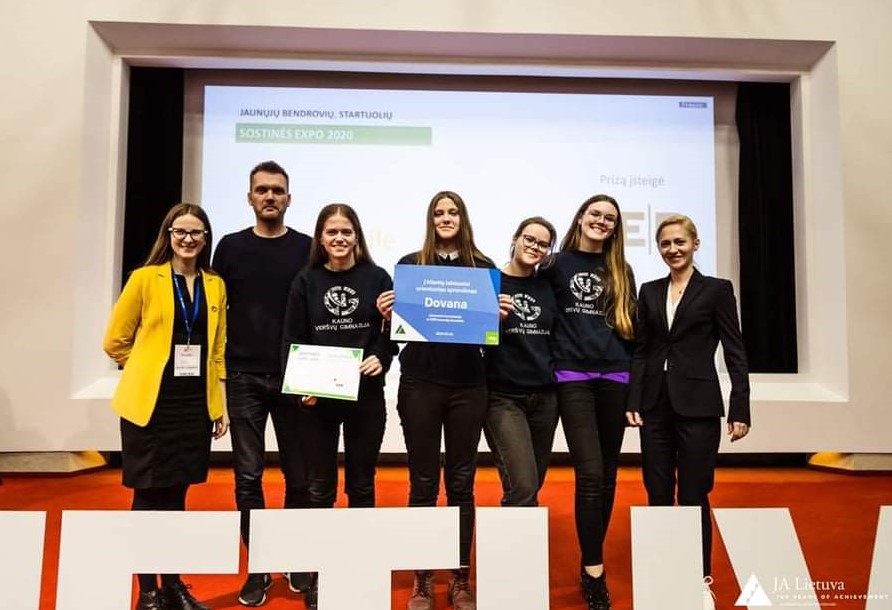'Care to Smile' - a sustainable high-school student company
Augustė, Julija, Gabrielė, Viltė, Aistė, and Saugintas – 'Care to Smile' toothpaste - Kaunas, Lithuania

By Alberto Giacometti, Nordregio; Front picture - Lithuania's Junior Achievement archives
'Care to Smile' is the name of the student company started by a bunch of enthusiastic high-school students wanting to get a taste of the business world while keeping the sustainability flag high. They signed up to the ‘Junior Achievement programme – Lithuania’ to get the support they needed and got awarded as the 3rd best student company in Lithuania in 2020 (out of 280 companies). As the name suggests, 'Care to Smile' is producing toothpaste that takes better care of people’s health and the environment. It has a solid consistency; it is packed in a recyclable glass jar and uses only natural ingredients.
The team
The student company consolidated with a team of six classmates in their 11th grade of high school. Augustė Murauskaitė is the team leader but shares the ‘vice-president’ title with other 4 members in the team. Namely, Julija Stankevičiūtė vice-president for marketing, Gabrielė Šimkutė vice-president for sales, Viltė Mackevičiūtė vice-president for finance, and Aistė Andrijūnaitė vice-president for supply-chain management. In addition, Saugintas Skilinskas is in charge of the production process. However, while each of them takes full responsibility for their position, the roles are not strict, they work together as a team.
According to Augustė, “the team is very good, each has their distinct qualities”. Every member takes leadership and responsibility for their own role – “we can all trust each other that the other with their part of the work” adds Julija.
“It became natural for me to be a leader,” recalls Augustė. Her brother is a businessman, with whom she talks a lot about the business arena, and he shares tips and books with her. Julija thinks Augustė is quite agile at guiding the team and providing the support they need. Julija, who taught herself graphic design, is behind the creative scene – she enjoys writing, designing their marketing material, and managing their Facebook and Instagram pages.

Care to Smile toothpaste and concept
Care to Smile toothpaste is beautifully packed in a glass jar following a black design scheme. It uses only natural ingredients, which are a better offer for users’ health and for the environment. The toothpaste is in fact not a paste, but a solid cosmetic for tooth wash. Another noticeable difference compared to regular toothpaste is that it does not produce foam. However, according to Julija one “just needs to get used to it; and after that, it is hard to get used back to the regular one”.
Care to Smile is sold for 10 euros a pack, and it can last around half a year, which is significantly longer than regular toothpaste. Sustainability is also a good business, Augustė and Julija think. But their product offers more than economic gains, it provides a possibility for users to make responsible choices. According to Julija, “young people, and people in general, have the responsibility to do something to improve the world we live in – not only in business - sustainability can be applied in everything we do in regular life”. For instance, she adds, “we must be conscious about recycling, the impacts of fast fashion, plastic bags, and all different products we consume”.
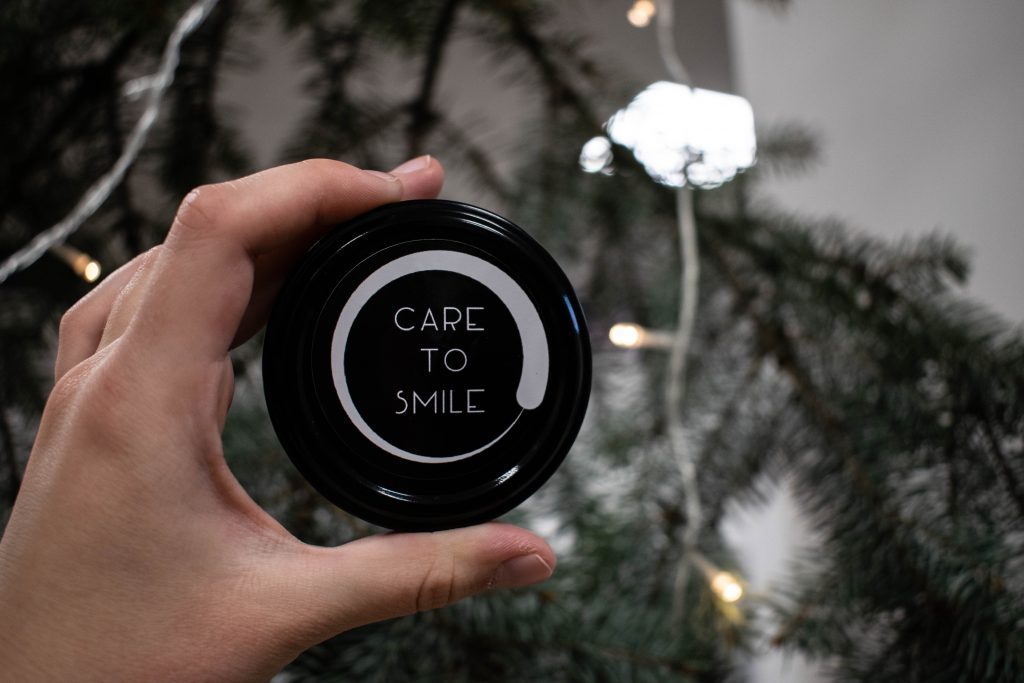
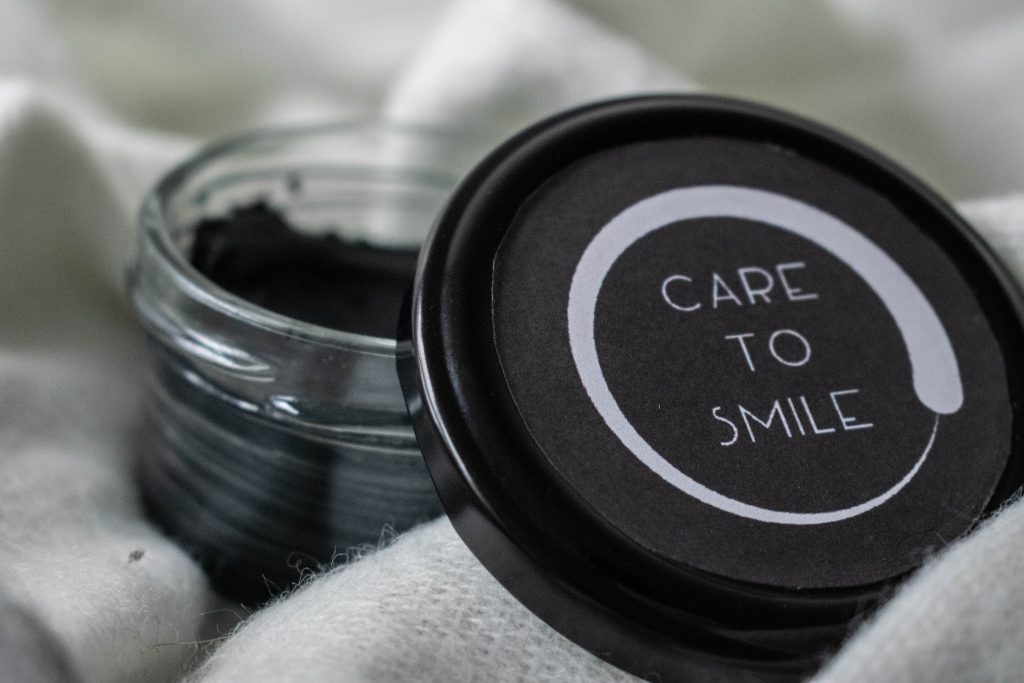
Journey
Everything started around October 2019 after Augustė saw a presentation about Junior Achievement and brought it up to her classmates. Lithuania’s Junior Achievement (LJA), is a non-profit organization that provides theoretical and practical training on market economy in Lithuanian schools. The LJA is member of Junior Achievement Worldwide, which operates globally.
“Coming out with the business idea took a lot of time” recalls Augustė, but once they had it, their chemistry teacher helped them to come up with a recipe for sustainable toothpaste. “Sustainability is also a good business opportunity” said Julija, and added “there are not may other products like 'Care to Smile' in Lithuania”. This gave them full motivation to build up their idea.
Through the LJA programme the team was able to get the support they needed to establish the company. They spent time after school attending courses where they learnt about business and economics and developed entrepreneurial and leadership skills. Also, they applied the knowledge from their regular courses, particularly economics and chemistry. They were assigned two mentors: a teacher from their school and one from the business world, to help them develop their idea.
According to Julija, “the teacher is a very good mentor, he gives us a lot of ideas and guidance, but without pushing or intervening. He comes at the right moment with the right advice but allows us to explore our own ideas and take initiative”. It was the same teacher who helped them find Lena Sokolovska, the business-mentor. Lena is the founder of 'Uoga Uoga', (or‘berry berry’ in English), a company producing ecological cosmetics. She has given them very useful advice around hygiene norms, among other things - Julija recalls.
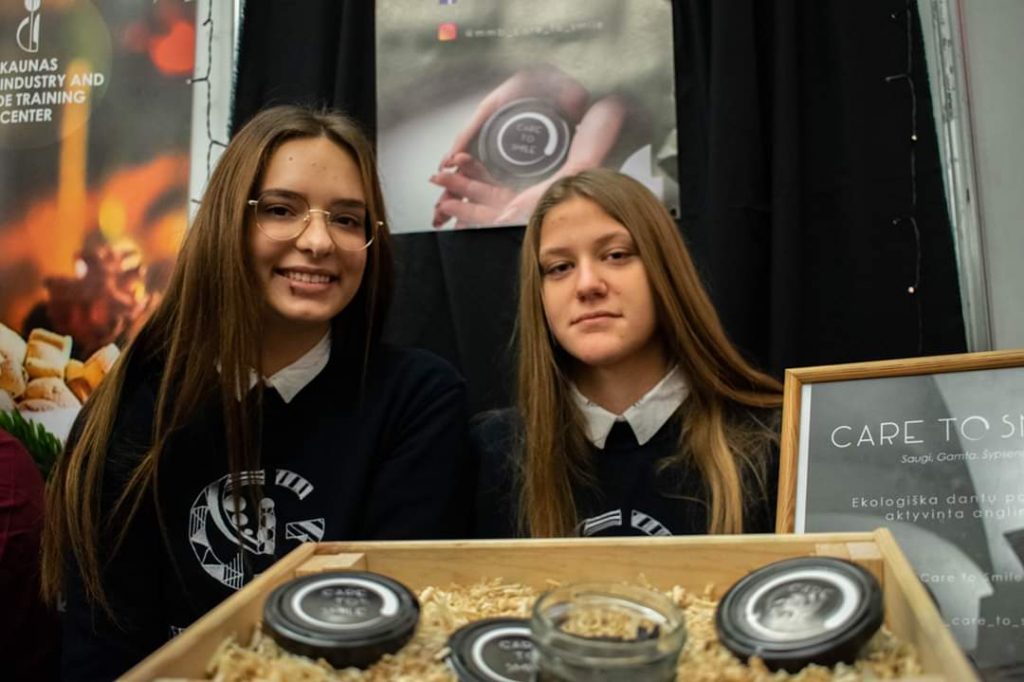
The LJA gave them the opportunity to start a student company without formally registering it nor paying taxes, which offered them flexibility and freedom to experiment with different ideas. It also offered them access to a wider network of like-minded people with whom to share ideas and learn.
With the support of LJA, the team worked hard with their communication and self-confidence. As part of the training the whole team was able to train pitching and public speaking skills. They also designed the poster, the logo and other visual material for the stands at various LJA conventions they participated in.
During the business conventions, the LJA invites specific companies and organisations to make nominations of the best companies according to their own evaluation. 'Care to Smile' got nominated by SEB bank, Nordic Council of Ministers office in Lithuania (as the “Most sustainable students company”, among others, and won the third place in the overall competition Lithuania.
Impact
According to Julija and Augustė, some “1.5 billion toothpaste tubes are discarded and end up in dumpsites” generating an enormous amount of plastic pollution. Moreover, regular toothpaste has components that are harmful to people and the environment. Sodium lauryl sulphate, for instance, can cause rashes, breathing and vision problems and has been associated with cancerogenic effects. Parabens and Triclosan are associated with disrupting hormonal activity and adverse effects to the endocrine system. Moreover, “the residues leak into the soil and water damaging the ecosystems”. Aside from what is leaked at the waste dumpsites, most of the used toothpaste goes through the drains into waterways ending in rivers and seas. This enhances algae growth, and disrupts the hormones and development of marine fauna.
Care to Smile toothpaste, instead, contains coconut oil, which reduces bacteria and unpleasant mouth odour; calcium carbonate, which strengthens and polishes our teeth; among other natural components that protect the gum and regulate the balance of alkaline acids in the mouth. According to the team: “We think these ingredients are a lot better, because they are not only safe for people, they are also vegan and safe for nature. They would not cause as many problems if they got into the soil and the water, they do not leave an aftertaste after you brush your teeth, they do not make your stomach hurt, etc.”
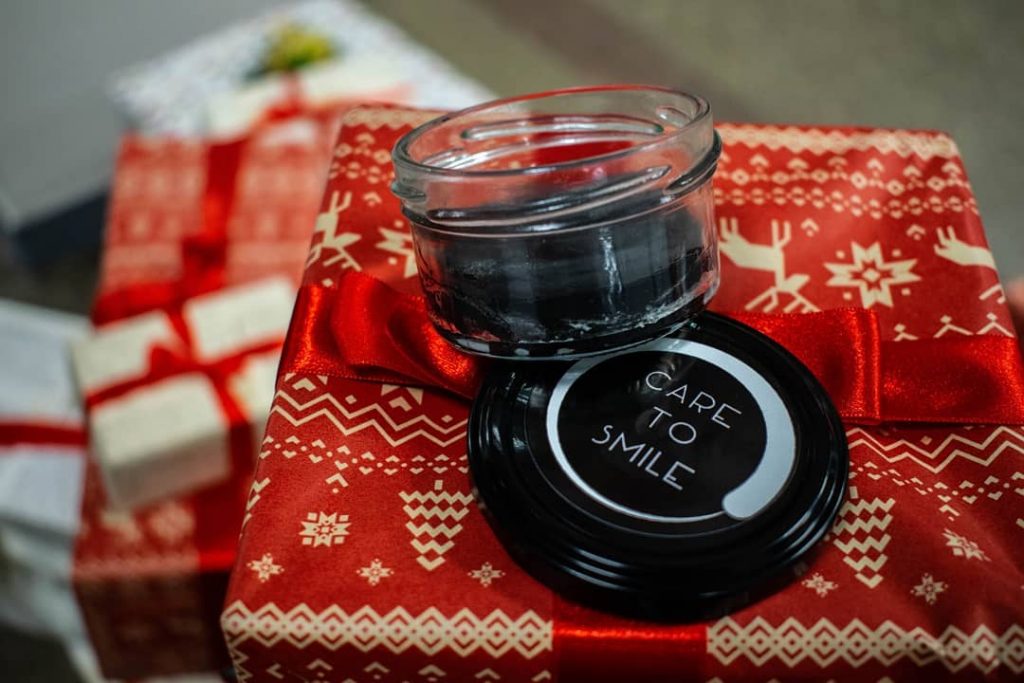
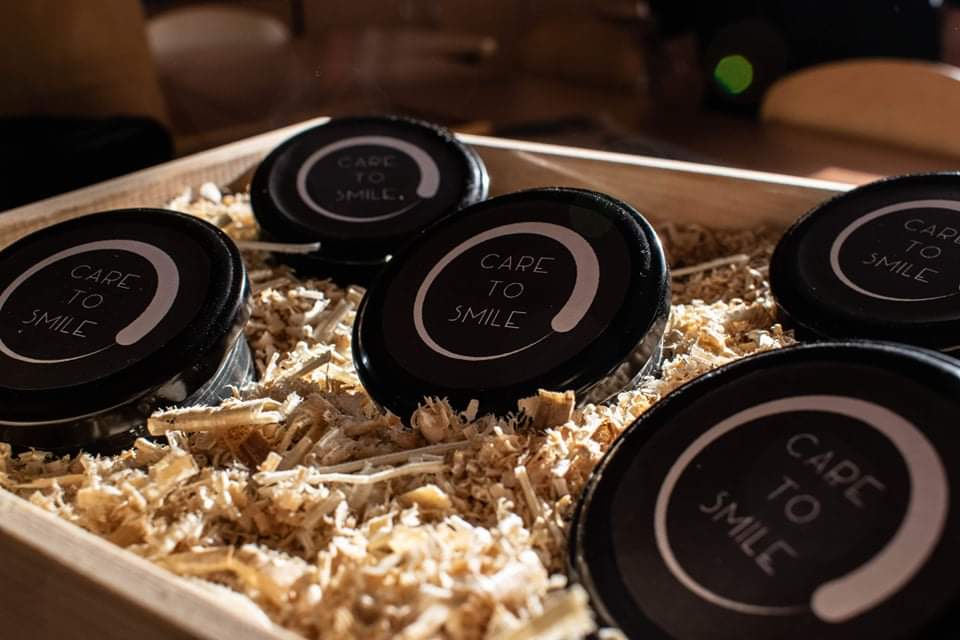
Additionally, one jar of Care to Smile toothpaste (75ml) can last up to half a year, as less amount is needed for every wash. In contrast, regular toothpaste (75-125 ml) typically lasts from one up to two months. Finally, being packaged in reusable glass jars, Care to Smile toothpaste could substantially reduce plastic pollution.
Next steps
At the moment, the team is producing toothpaste at the school chemistry lab. However, because of the quarantine imposed after the COVID-19 outbreak and the end of the school year, the production is on hold. “The plan is to continue next year through JA and advance to the next level”. The next level would imply “becoming independent from JA and registering a company”. At this stage, their aim is to outsource the production process to another company and focus mostly on marketing. The young team is aware that the company “can fail, but we are optimistic because it is a promising business idea”.
